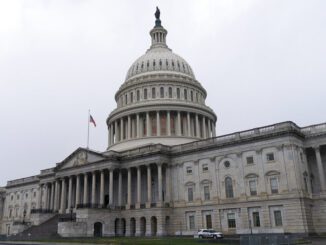CHICAGO — Race has emerged as a central issue — and a delicate one — in the 2024 presidential contest as the GOP’s primary field features six candidates of color, making it the party’s most racially diverse ever.
Former Texas congressman Will Hurd, who was the only black Republican in the House of Representatives during his final two years in office, launched his candidacy in late June.
Miami Mayor Francis Suarez, who is of Cuban descent, entered the race as well, vowing to create a new brand of politics. He joined South Carolina Sen. Tim Scott, the first black senator in the South since Reconstruction. Nikki Haley, a former South Carolina governor and U.N. ambassador, is of Indian descent, as is Vivek Ramaswamy, a biotech entrepreneur who describes himself as “a cultural thought leader.” Also in the race is Larry Elder, an African American raised in Los Angeles’ South Central neighborhood who came to national attention as a candidate in the failed effort two years ago to recall California Gov. Gavin Newsom, a Democrat.
The GOP candidates of color are considered underdogs in a field currently dominated by former President Donald Trump and Florida Gov. Ron DeSantis.
Yet the party’s increasingly diverse leadership suggests the GOP may have a real opportunity in 2024 to further weaken the Democrats’ grip on African Americans and Latinos. Those groups have been among the most loyal segments of the Democratic coalition since Republican leaders fought against the Civil Rights Act of 1964.
Marc Morial, president and CEO of the National Urban League, said the GOP’s policies are far more important than the racial and ethnic diversity of their presidential candidates. He noted there also were four Republican candidates of color in 2016, the year Trump won the White House.
With few exceptions, the Republican candidates who have entered the presidential primary field have embraced the GOP’s “anti-woke” agenda, which is based on the notion that policies designed to address systemic inequities related to race, gender or sexuality are inherently unfair or even dangerous.
DeSantis describes such policies as “cultural Marxism.”
Scott insisted that America is not a racist country in his recent announcement speech.
“We are not defined by the color of our skin. We are defined by the content of our character. And if anyone tells you anything different, they’re lying,” he said.
In her announcement video, Haley noted that she was raised in a small town in South Carolina as “the proud daughter of Indian immigrants — not black, not white, I was different.” Like Scott, she has defended the GOP against charges of racism.
“Some think our ideas are not just wrong, but racist and evil,” Haley said. “Nothing could be further from the truth.”
Elder is quick to criticize the Democrats’ “woke” agenda, Black Lives Matter and the notion of systemic racism.
Before Suarez’s announcement, the GOP did not have any Hispanic candidates in the 2024 contest. He said his ethnic background matters.
“I’m the only Hispanic candidate in both parties who’s running. I think that’s incredibly important,” he said in an interview on ABC, noting that roughly 20% of the U.S. is made up of Hispanics, who have trended Republican recently. “I’m focused on not just winning the 2024 election. I’m focused on creating a brand of politics that can win generational elections.”
A majority of Latino voters supported Biden in the 2020 presidential contest, according to AP VoteCast, an extensive national survey of the electorate. But Trump cut into that support in some competitive states, including Florida and Nevada, revealing important shifts among Latinos from many different cultural backgrounds.
In last fall’s midterm elections, support grew for Republican candidates among black voters, although they remained overwhelmingly supportive of Democrats, AP Votecast found. Overall, Republican candidates were backed by 14% of black voters, compared with 8% in the midterm elections four years earlier.
While the shifts may be relatively small, strategists in both parties acknowledge that any shift is significant given how close some elections may be in 2024.
In Chicago, Tyrone Muhammad, who leads Ex-Cons for Social Change, lashed out at Republicans for being “losers” for not seizing a very real opportunity to win over more African Americans. While sitting next to Ramaswamy on stage, he also declared that the Republican Party is racist.
Later, he said he actually voted for Trump in 2020 because Trump enacted a criminal justice bill that aimed to shorten prison sentences for nonviolent drug offenders. While the GOP has since embraced tough-on-crime rhetoric, Muhammed noted that Biden as a senator helped pass the 1994 crime bill that led to the mass incarceration of black people.
Muhammad said he might vote Republican again in 2024, despite the party’s shortcomings. He pointed to the GOP’s fight against illegal immigration as a core reason for support.
“I may not like you as an individual, but I like your issues, I like your policies,” he said.


